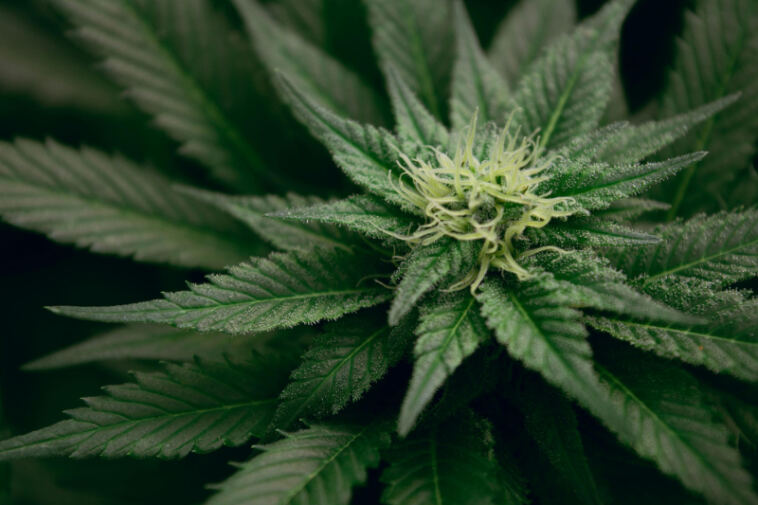- Like
- SHARE
- Digg
- Del
- Tumblr
- VKontakte
- Flattr
- Buffer
- Love This
- Save
- Odnoklassniki
- Meneame
- Blogger
- Amazon
- Yahoo Mail
- Gmail
- AOL
- Newsvine
- HackerNews
- Evernote
- MySpace
- Mail.ru
- Viadeo
- Line
- Comments
- Yummly
- SMS
- Viber
- Telegram
- JOIN
- Skype
- Facebook Messenger
- Kakao
- LiveJournal
- Yammer
- Edgar
- Fintel
- Mix
- Instapaper
- Copy Link
In a world where the legalization of cannabis continues to gain momentum, a new conversation emerges at the intersection of pot and social justice. As the debate over access and equity in the cannabis industry unfolds, it’s crucial to unpack the complex dynamics at play. From addressing the disproportionate impact of past drug policies on marginalized communities to advocating for fair representation and opportunities within the booming market, the intersection of cannabis and social justice demands our attention and action.
Exploring the Historical Context of Cannabis Criminalization and Racial Disparities in Enforcement
Let’s delve into the intricate web of historical events and societal norms that have shaped the criminalization of cannabis and its disproportionate impact on marginalized communities. The roots of cannabis prohibition in the early 20th century were deeply intertwined with xenophobia, racism, and economic interests. As we uncover the layers of this complex history, it becomes clear that the enforcement of cannabis laws has perpetuated systemic inequalities and social injustices.
In the United States, the War on Drugs declared by President Richard Nixon in the 1970s further exacerbated the criminalization of cannabis, disproportionately affecting communities of color. Racial disparities in cannabis enforcement have led to devastating consequences, including the mass incarceration of Black and Hispanic individuals for non-violent drug offenses. The harsh penalties imposed on these marginalized populations have had far-reaching repercussions on their lives, families, and futures.
It is essential to acknowledge the intersection of cannabis policy and social justice in order to address the deep-seated inequities ingrained within our legal system. By advocating for reform and working towards restorative justice, we can strive towards a more equitable and compassionate society where all individuals have equal access to justice and opportunity.
Analyzing the Current Landscape: How Legalization is Impacting Communities of Color
As we delve into the intricate relationship between cannabis legalization and social justice, it becomes evident that communities of color are disproportionately impacted by the current landscape. The legalization of cannabis has brought about a wave of economic opportunities, but it has also shed light on the stark disparities in how different communities are affected.
One of the key issues at play is the unequal access to resources and opportunities within the cannabis industry. Communities of color often face barriers to entry, such as lack of capital, limited access to information, and systematic discrimination. This perpetuates the cycle of inequality and further marginalizes these communities in the burgeoning cannabis market.
Moreover, the criminalization of cannabis has had devastating effects on communities of color, leading to disproportionate rates of incarceration and ongoing stigmatization. The shift towards legalization has sparked important conversations about reparation and social equity programs that aim to address these historical injustices. However, it remains crucial to analyze the effectiveness of these initiatives and ensure that they truly benefit those who have been most impacted.
Challenges and Opportunities for Equity in the Cannabis Industry
In the complex landscape of the cannabis industry, the intersection of equity and social justice presents both challenges and opportunities. One of the key challenges is the lack of diversity among industry leaders and stakeholders, with minority groups often facing barriers to entry and success. This disparity can perpetuate existing inequalities and hinder efforts towards a more inclusive and equitable industry.
On the flip side, there are opportunities for positive change and progress towards equity in the cannabis space. By actively promoting diversity and inclusion, businesses can tap into a wider pool of talent and perspectives, leading to innovation and growth. Initiatives such as mentorship programs, social equity licenses, and community reinvestment efforts can help address systemic issues and create a more level playing field for all participants.
Navigating the path towards equity in the cannabis industry requires a multifaceted approach that addresses both structural barriers and social inequalities. Collaborative efforts between industry stakeholders, policymakers, and advocacy groups are crucial in driving meaningful change. By recognizing the challenges and embracing the opportunities for equity, the cannabis industry can move towards a more just and sustainable future for all.
Strategies for Advocates and Policymakers to Advance Social Justice in Cannabis Legalization
In order to advance social justice in cannabis legalization, advocates and policymakers must adopt strategic approaches that address the intersection of race, equity, and access within the industry. One key strategy is to prioritize expungement of criminal records for individuals convicted of non-violent cannabis offenses, particularly those from marginalized communities. This not only helps to rectify past injustices but also allows these individuals to participate in the legal market.
Another effective strategy is to implement equity programs that provide resources, support, and opportunities for minority-owned businesses to thrive in the cannabis industry. This can include measures such as providing low-interest loans, technical assistance, and mentorship programs to help level the playing field for entrepreneurs who have historically faced barriers to entry. By actively promoting diversity and inclusion, advocates and policymakers can help create a more equitable and representative cannabis market.
Furthermore, it is crucial for advocates and policymakers to engage with community stakeholders and listen to their concerns and priorities when shaping cannabis legalization policies. By incorporating diverse perspectives and voices into the decision-making process, policies can be more reflective of the needs of all communities, especially those most impacted by the war on drugs. Building coalitions and partnerships with grassroots organizations can also help amplify the voices of marginalized communities and ensure that social justice remains at the forefront of cannabis legalization efforts.
The Importance of Expungement and Reinvestment in Communities Harmed by the War on Drugs
When discussing the intersection of cannabis and social justice, it is crucial to address the importance of expungement and reinvestment in communities impacted by the War on Drugs. Expungement refers to the process of clearing or sealing a person’s criminal record, particularly for nonviolent cannabis-related offenses. This is essential for individuals who have been disproportionately targeted and harmed by outdated drug policies.
By expunging these records, we not only provide individuals with a fresh start but also acknowledge the systemic injustices that have plagued marginalized communities for decades. Additionally, reinvesting in these communities through opportunities such as job training, education, and social services is crucial for breaking the cycle of poverty and incarceration perpetuated by the War on Drugs.
It is time to prioritize restorative justice and equity in the cannabis industry, ensuring that those most impacted by prohibition have a seat at the table. By centering the voices and experiences of these communities, we can work towards creating a more just and inclusive industry that benefits all individuals, regardless of their past involvement with cannabis.
Q&A
Q: What is the relationship between cannabis and social justice?
A: The intersection of cannabis and social justice is a complex and multifaceted issue that touches on topics such as racial inequality, criminal justice reform, and economic empowerment.
Q: How does the criminalization of cannabis impact marginalized communities?
A: The criminalization of cannabis has disproportionately impacted marginalized communities, particularly people of color, who are more likely to be arrested and receive harsher punishments for cannabis-related offenses.
Q: How can the cannabis industry work towards achieving social justice?
A: The cannabis industry can work towards achieving social justice by implementing equitable hiring practices, providing opportunities for individuals impacted by the War on Drugs, and supporting policies that promote diversity and inclusion.
Q: What role does advocacy play in the intersection of cannabis and social justice?
A: Advocacy plays a crucial role in advancing social justice within the cannabis industry, as it helps to raise awareness, build coalitions, and push for policies that promote equity and fairness.
Q: How can consumers support social justice within the cannabis industry?
A: Consumers can support social justice within the cannabis industry by purchasing products from companies that prioritize diversity and inclusion, advocating for policy changes, and supporting organizations that work towards dismantling systemic inequalities.
Key Takeaways
As we continue to delve into the complex and interconnected worlds of cannabis and social justice, it becomes clear that there is much more work to be done. By untangling the various threads that tie these two movements together, we are able to see the ways in which they inform and influence each other. It is only through continued exploration, dialogue, and action that we can hope to create a more equitable society for all. Let us not shy away from these difficult conversations, but rather embrace them as opportunities for growth and change. Together, we can unpack the intersection of cannabis and social justice, and strive towards a more just and inclusive future.


